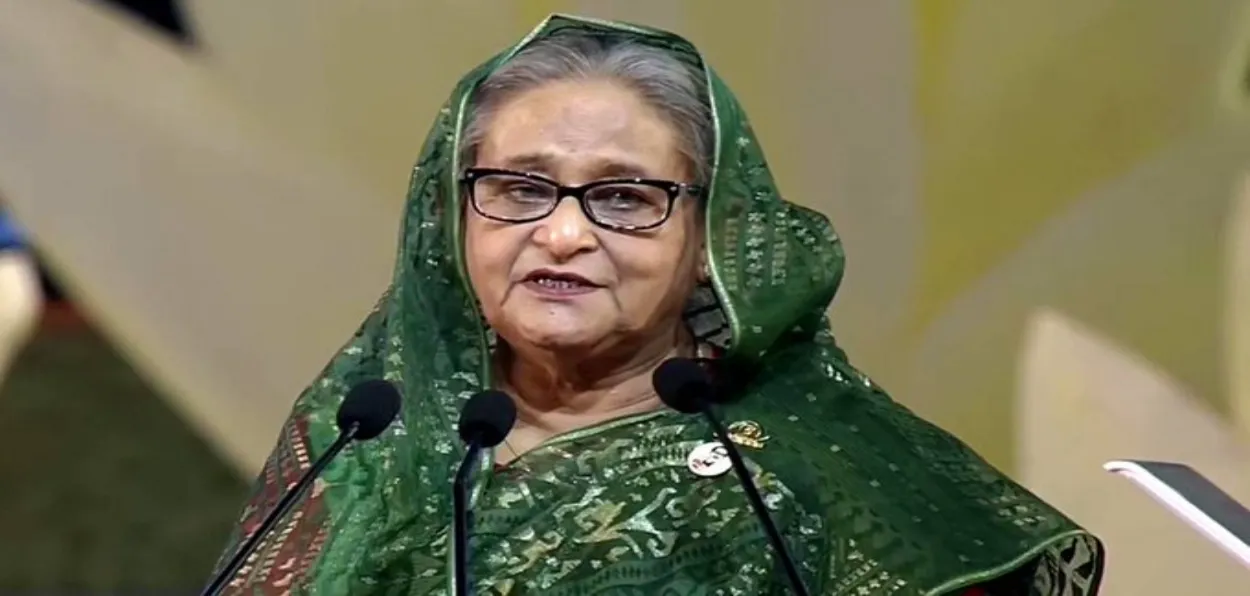
 Kingshuk Chatterjee
Kingshuk Chatterjee
A special tribunal in Dhaka has tried in absentia Sheikh Hasina Wazed, the deposed Prime Minister of Bangladesh, found her culpable for crimes against humanity, causing the death of some 1,400 protesters, and sentenced her to death. Since the verdict, the Bangladeshi government functionaries and spokespersons have been calling upon India to extradite the ‘convicted war criminal’ to Dhaka. Hasina, who is in self-imposed exile in India, has dismissed the verdict as “biased and politically motivated”.
Sheikh Hasina, the elected leader of Bangladesh, was ousted in August 2024. The longest-serving elected leader (15 years), Hasina, earned the notoriety of ‘an elected autocrat.’ She is subverting the country’s democracy. Her fall started with her government ordering a brutal crackdown on student protesters enraged by her attempt to reserve government jobs for the children of Muktijuddha (freedom fighters) of 1971. It was seen as Hasina rewarding the Awami League members.
For nearly half a decade, Dhaka streets were filled with anger as the public trust in Hasina’s government had been on the decline by the time she took charge as PM for the fourth term. The popular perception was that the last two elections (boycotted by the main opposition BNP) were sham and lacked legitimacy.
Students protesting in Dhaka
Stories of torture and the nightmarish activities of the secret police have been widely circulated in the country. Many dissenters went missing. But, the last straw on the camel’s back proved to be a recording of Hasina’s instruction authorising the police to use ‘lethal weapon’ on the student-led protesters, which resulted in the death of some 1400 persons. Soon, the protests got out of control, and Hasina was bundled off to India by the Army in a military aircraft.
The caretaker government in Dhaka, led by Muhammad Yunus, demanded her extradition even before her trial began. New Delhi rejected the demands, saying extradition treaties pertained to convicted criminals, not to people merely charged with political offences. Dhaka now looks determined for Delhi to extradite Hasina, who now stands convicted in a court of law.
The circumstantial evidence presented before the tribunal was compelling; testimonies of government functionaries-turned approvers, the case against Hasina cannot be said to have proven beyond a reasonable doubt. The testimonies could be tendentious, and the recordings ordering crackdown could be claimed to have been taken out of context.
Further, Hasina was denied the right to representation of a counsel of her choice. She was represented by a court-appointed lawyer, Amir Hossein, who failed to call a single defence witness, while 45 appeared for the prosecution. This, by itself, warrants dismissal on charges of mistrial for violation of due process.
Students protest in Bangladesh
New Delhi, thus, proved prescient in taking the position that Hasina was not likely to be given a free and fair trial by the unelected caretaker administration under the guidance of Muhammad Yunus, and remains within its rights to reject demands for Hasina’s extradition citing Articles 6(2) (political offence) and 8(3) (lack of good faith).
However, it may be unwise of Delhi to make any hasty pronouncements on this matter. The verdict and the sentence, after all, are more political posturing by Dhaka than a juridical milestone, for the verdict seemed to have been arrived at long before the trial concluded.
It was almost as if the case was put together in order to arrive at the verdict agreed upon beforehand. Dhaka is fully aware that Delhi is unlikely to hand Hasina over – it would seem they want to use Delhi’s refusal as evidence for the argument that she was an Indian stooge. By exerting pressure on Delhi, Hasina’s enemies are determined to finish off both her and her party, the Awami League. Politically, for having traded off Bangladesh’s sovereignty.
Delhi thus had best continue dismissing the interim government’s requests as that of a tendentious and unelected authority, and then stonewall any prospective elected government till the issue loses resonance altogether.
Apart from the immediate diplomatic considerations for not handing over Sheikh Hasina, there is a larger political consideration as well. Sheikh Hasina has been the best thing that has ever happened to India in Bangladesh, particularly with her help and support in taking the wind out of militancy in the north-east. She has been an all-weather friend – standing by such a friend is a test of character. If you hang such friends out to dry, you would not have any left. If Hasina had been allowed to face a free and fair trial, it could be a different story.
ALSO READ: Adeeba Ali's journey from wheelchair to shooting star
The present verdict virtually sacrifices Hasina to the crowd baying for blood, calling for vengeance, not justice. New Delhi should firmly stand its ground.
Kingshuk Chatterjee is Professor of History, Calcutta University
